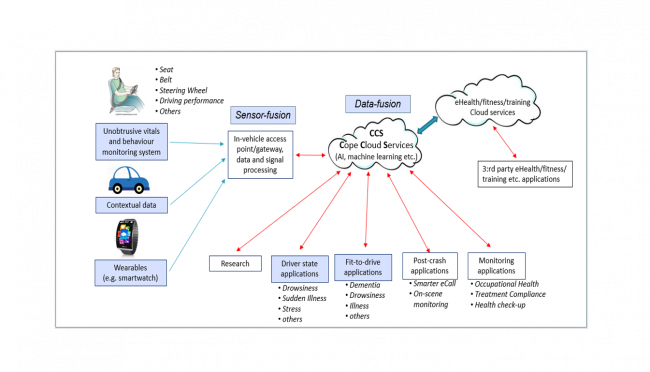DRIVER
Valid information about the state of the driver will be paramount to enable future safe automated driving. Drivers that are fatigued or sleepy, highly stressed or are struck by a sudden disease, are causing a high proportion of fatal motor vehicle crashes. The automated vehicles will be better equipped to handle such situations if the driver state can be accurately detected. In this project DrivER (Driver physiological monitoring for vehicle Emergency Response), which is part of the Connected Occupant Physiological Evaluation (COPE) concept designed by Chalmers University of Technology and Autoliv Development AB, we aim to evaluate three related concepts for driver state detection: 1) Using unobtrusive sensors to detect sleepiness in a real-road study; 2) Using unobtrusive sensors separately or in combination (sensor-fusion) to assess stress level and mental load of professional drivers (ambulance personnel); 3) Detect sudden illness due to heart related complications such as arrythmias using unobtrusive sensors separately or in combination (sensor-fusion) and as a result enable medical evaluation and support from a distance. The unobtrusive sensors utilized will include smart wearables (e.g. smartwatch), radar sensors, and sensors integrated in vehicle parts like safety belt, seating, dashboard and steering wheel. The intended user is private and professional drivers, and the aim is to show proof-of-concept for the three strands of research.
This project is part of the Connected Occupant Physiological Evaluation (COPE) project (https://www.chalmers.se/en/departments/e2/news/Pages/A-technology-that-alerts-if-you-doze-at-the-wheel.aspx).

